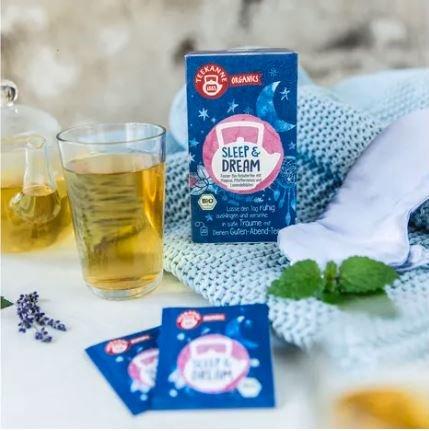Packaging generally conveys the first impression of a product and gives the brand an identity. Consumers want to feel that the packaging caters to their lifestyle. The form this lifestyle takes can change rapidly and is no longer as static as it used to be. Climate awareness, health and wellness, sustainability, New Work, knowledge culture and connectivity are the current defining trends, says packaging designer Roman Klis. At FACHPACK, the founder of brand strategy and design agency Klis talked about the future of brands and design and altered consumer behaviours. He believes there will be huge momentum due to the purchasing habits of Generation Z, i.e., people born between 1997 and 2012, because baby boomers and Generation X would also orient themselves to the behaviour of Gen Z. According to Klis, this is tantamount to a historic change that has not happened in the preceding generations. As a result, trends will become apparent on the market much faster, and manufacturers will need to respond to them quickly and agilely. Generation Z is developing its own preferences, which are similar across the world. A brand design that is popular in the Middle East will therefore also appeal to European and American consumers. This is due above all to social media like Instagram, the effect of which is that affinities and lifestyles are becoming increasingly similar worldwide.
Lifestyle brands therefore need to speak a different language and align themselves to young consumers to reach older consumers as well. One example given by Klis is the launch of Teekanne Organic Teas. Previously, the company had lost market shares with the traditional design of its organic teas. Thanks to a new packaging design featuring matt, natural-looking surfaces and a “hippie look”, the new pack appeals to the taste of Generation YZ. However, baby boomers and Gen X are also important purchasers, accounting for over 50 percent. Klis describes these kinds of designs as non-verbal key visuals that convey the brand message immediately. These key elements work equally well in the online and bricks-and-mortar retail environments. However, messages like sustainability, climate protection and health need to be credible and authentic. Conversely, insincere claims very quickly fall flat in social media and at a global level, says the packaging designer.
How the pandemic is changing lifestyle trends
The coronavirus pandemic has also had a global impact on people’s purchasing behaviours over the last few years. Global lifestyle trends like regional sourcing, sustainability, online retail and health-driven consumption have accelerated further as a result. B+P Consultants advise that companies must therefore adapt particularly the design aspects and functionalities of packaging to these new circumstances. In the coronavirus era, consumers are generally purchasing more consciously with an increased focus on regionality and sustainability. The trend towards locally produced goods made with ingredients purchased locally can be observed worldwide, say the consultants. Less surprising is the increase in health awareness, a strong driver for purchasing decisions. This trend already existed but has intensified further, according to B+P.
With a view to online retail, a survey by global strategy and marketing consultants Simon-Kucher & Partners confirms that many consumers have switched to online shopping. And just under 30 percent of respondents indicated that they wanted to stick to these new ways of shopping after the pandemic as well. When it comes to online shopping, consumers especially appreciate aspects like the convenience (e.g., delivery to their home, less time invested) and the unlimited availability of products (e.g., wide product range at any time of day).
At the same time, a trend towards individualisation is also being observed. For manufacturers, this means that packaging and packing processes are becoming more complex, and even batch size 1 needs to be possible in automated processes. A pioneer in this area is MyMuesli, which was able to adapt to defining consumer trends at an early stage with aspects like health, wellness, online retail and individualisation. The company offers highly customised product options tailored to a customer’s own DNA or personal gut microbiome.
The fact that manufacturers can react quickly to lifestyle trends is largely due to the advances made in packaging technology and packaging printing. Without digital printing, innovative designs and customisations would not be possible. Increasingly intelligent packaging machine control systems also provide the necessary flexibility to respond quickly to new trends. Exhibitors at the next FACHPACK (27 – 29 September 2022 in Nuremberg) will again present the latest developments as part of the main event theme “Transition in Packaging”.
About FACHPACK
FACHPACK (27.–29.9.2022, Nuremberg) is the European trade fair for packaging, technology, and processes, where exhibitors showcase their products for the packaging process chain for industrial and consumer goods. On display will be packaging materials, packaging and accessories, bottling and packaging machinery, labelling, marking and identification technology, machines and equipment for the packaging periphery, packaging printing and finishing systems, palletising technology, intra-logistics and services. With its new slogan: “We create the future”, FACHPACK 2022 will be devoted to the trending topic of “Transition in Packaging”. As the No. 1 gathering for the European packaging market, FACHPACK attracts trade visitors from all packaging-intensive sectors like food/beverages/luxury food, pharmaceuticals/cosmetics/chemicals/health care, non-food/pet food/other consumer goods as well as automotive/technical articles/medical technology and other industrial goods: www.FACHPACK.de/en
More information on FACHPACK
NürnbergMesse GmbH
Messezentrum
90471 Nürnberg
Telefon: +49 (911) 8606-0
Telefax: +49 (911) 8606-8228
http://www.nuernbergmesse.de
Telefon: +49 (911) 860683-55
Fax: +49 (911) 86061283-55
E-Mail: christina.freund@nuernbergmesse.de
![]()

